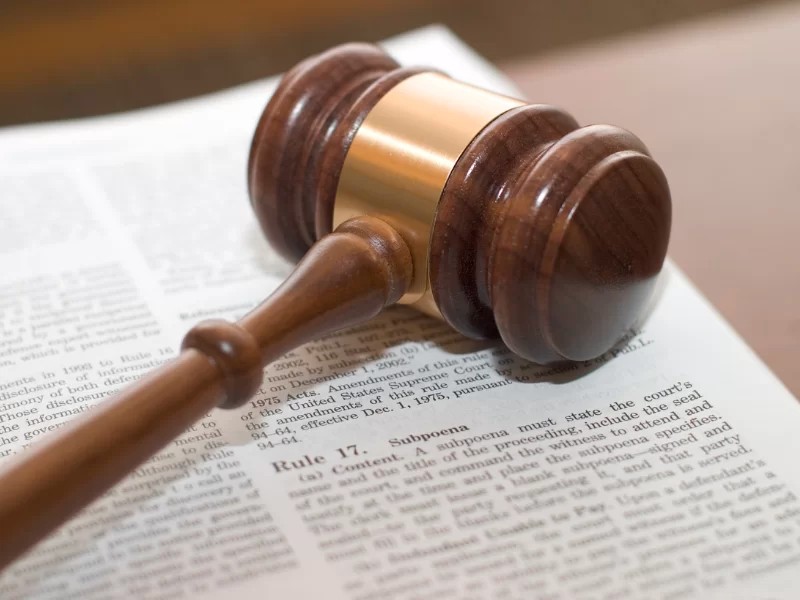Subpoenas play a crucial role in the legal system, allowing parties involved in a legal dispute to obtain information and evidence necessary to support their case. Compliance with a subpoena is not optional; it is a legal obligation. In this blog post, we will explore the legal implications of non-compliance with subpoenas, why compliance is important, the potential consequences of non-compliance, the legal rights and obligations surrounding subpoenas, and what steps to take if non-compliance occurs.
Understanding Subpoenas
A subpoena is a legal document issued by a court or an administrative agency that commands a person to produce documents, testify as a witness, or provide other types of evidence relevant to a legal proceeding. Subpoenas can be served on individuals, businesses, or organizations, and failing to comply with a subpoena service can have serious legal consequences.
Why Compliance Is Important
Why Compliance Is Crucial
Compliance with a subpoena is crucial because it ensures the integrity of the legal system. Subpoenas are an essential tool for obtaining evidence and information necessary to resolve legal disputes. Non-compliance undermines the fairness of the legal process and can hinder the administration of justice.
Consequences of Non-Compliance
Non-compliance with a subpoena can have severe consequences. Courts take non-compliance seriously and have the authority to enforce compliance through various means, including financial penalties, sanctions, and even criminal charges.
Protecting Legal Rights
Compliance with a subpoena is not only a legal obligation but also an opportunity to protect your legal rights. By complying with a subpoena, you ensure that relevant evidence is provided, which can strengthen your position in a legal dispute and protect your legal interests.
Maintaining Trust and Credibility
Non-compliance with a subpoena can damage your trustworthiness and credibility in the eyes of the court and the opposing party. Compliance demonstrates respect for the legal process and shows that you are willing to cooperate in resolving the dispute.
Compliance as a Business Requirement
For businesses, compliance with subpoenas is not only a legal obligation but also a necessary business requirement. Failure to comply can result in reputational harm, financial penalties, and potential legal repercussions that can significantly impact the success and operations of the business.
Potential Consequences Of Non-Compliance
Financial Penalties for Non-Compliance
Courts have the authority to impose financial penalties for non-compliance with subpoenas. These penalties can range from fines to reimbursement of the opposing party’s legal expenses incurred as a result of the non-compliance.
Loss of Legal Protections
Non-compliance with a subpoena can result in the loss of certain legal protections or privileges. For example, if a business refuses to produce requested documents, it may lose protection under certain confidentiality laws or trade secret protections.
Potential Criminal Charges
In some cases, non-compliance with a subpoena can lead to criminal charges. Willful disregard of a subpoena can be considered contempt of court, which can result in fines or even imprisonment.
Damage to Reputation and Public Trust
Non-compliance with a subpoena can have severe reputational consequences. Failure to comply may portray an individual or business as uncooperative, dishonest, or untrustworthy, which can damage relationships with clients, business partners, and the general public.
Injunctions and Court Orders for Compliance
If non-compliance continues, a court may issue an injunction or a court order requiring compliance with the subpoena. Failure to abide by such court orders can result in further legal consequences, including additional fines and sanctions.
Legal Rights and Obligations
When served with a subpoena, it is essential to understand your legal rights and obligations. While compliance is generally required, there may be circumstances where you can challenge the validity or scope of the subpoena.
Challenging a Subpoena
Grounds for Challenging a Subpoena
There are several grounds on which you can challenge a subpoena, including lack of relevance, overbreadth, privilege, or confidentiality. It is essential to consult with an attorney to evaluate the best strategy for challenging a subpoena based on the specific circumstances of your case.
Legal Process for Challenging a Subpoena
The legal process for challenging a subpoena varies depending on the jurisdiction and the court involved. Typically, it involves filing a motion with the court, outlining the grounds for challenging the subpoena and providing legal arguments supporting your position.
Establishing Lack of Relevance or Overbreadth
To challenge a subpoena based on lack of relevance or overbreadth, you must demonstrate that the requested information or evidence is not reasonably related to the issues involved in the legal proceeding or that the subpoena is seeking an excessive amount of information beyond what is necessary.
Asserting Privilege or Confidentiality
If the requested information or evidence is subject to privilege (such as attorney-client privilege or doctor-patient confidentiality), you can assert those privileges as grounds for challenging the subpoena. It is important to consult with an attorney familiar with the specific privilege laws applicable in your jurisdiction.
Requesting Modification or Quashing of the Subpoena
If challenging the entire subpoena is not possible or beneficial, you can request the court to modify or quash specific aspects of the subpoena. This can involve narrowing the scope of the information requested or requesting additional protections for sensitive or confidential information.
Steps to Take If Non-Compliance Occurs
Consult an Attorney
If you find yourself in a situation where non-compliance with a subpoena has occurred or is being considered, it is crucial to seek legal advice from an experienced attorney. They can provide guidance on the best course of action based on the specific circumstances of your case.
Evaluate the Subpoena
Thoroughly review the subpoena to understand the scope of the request and any specific deadlines or requirements. Understanding the details of the subpoena will help you and your attorney determine the most appropriate response.
Determine Legal Grounds for Challenging the Subpoena
Work closely with your attorney to assess the legal grounds for challenging the subpoena, including relevance, overbreadth, privilege, or confidentiality. Your attorney will guide you through the process of mounting an effective challenge.
Document Non-Compliance Attempts
If you choose not to comply with a subpoena, document all attempts made to comply or any challenges raised. Keeping a record of these efforts will help support your position if legal consequences arise later.
Prepare for Possible Legal Consequences
Be prepared for potential legal consequences that may arise from non-compliance. Work closely with your attorney to understand the possible outcomes and develop a strategy to mitigate any negative repercussions.
Advice from Legal Professionals
When it comes to dealing with subpoenas and compliance, seeking advice from legal professionals is crucial. Each case is unique, and obtaining personalized legal advice is essential to navigate the legal landscape effectively.
For further insights, read: Digital Age Dilemmas: Out-of-State Subpoenas and the World of Remote Evidence
In conclusion, non-compliance with subpoenas can have significant legal implications. Compliance is not only legally required, but it is also crucial for maintaining trust, and credibility, and protecting legal rights. Understanding the potential consequences of non-compliance, along with your legal rights and obligations, is essential. If faced with a subpoena and considering non-compliance or challenging it, it is crucial to consult with an attorney to navigate the legal process effectively.




